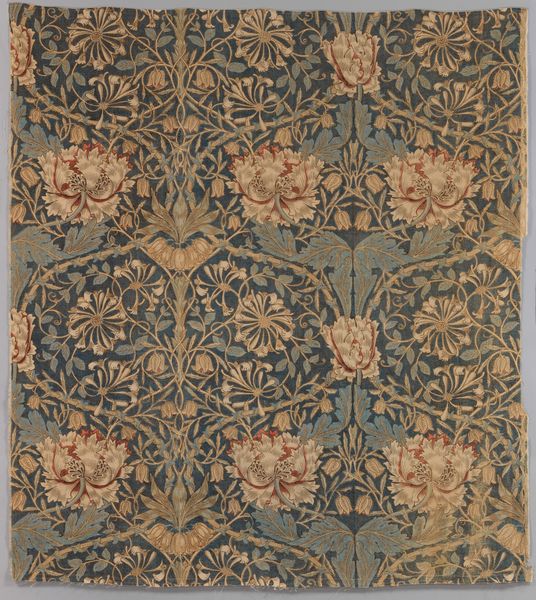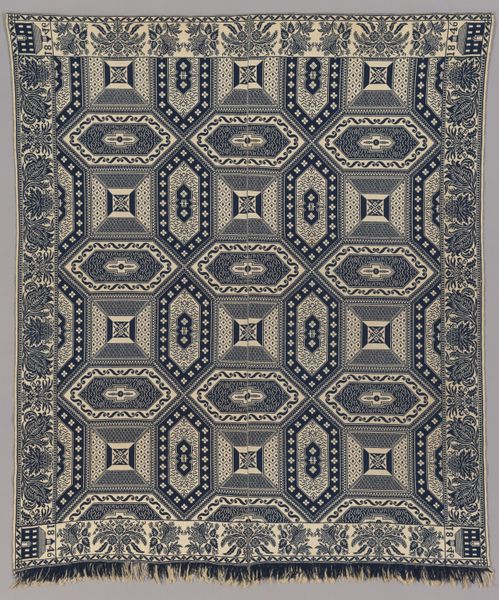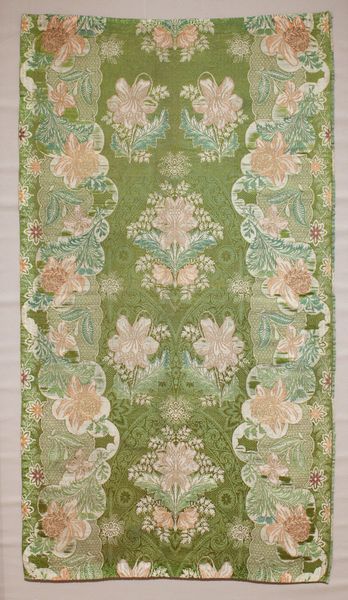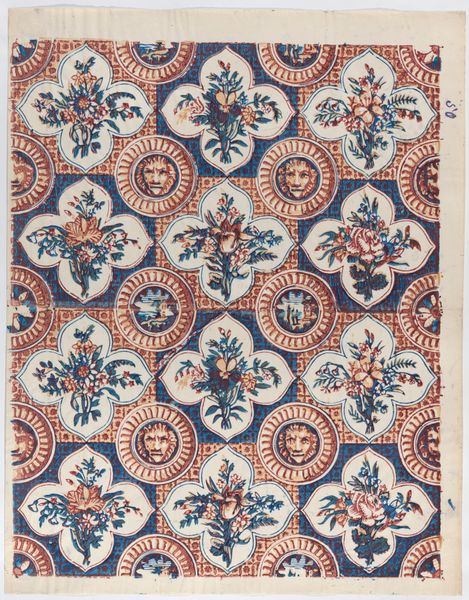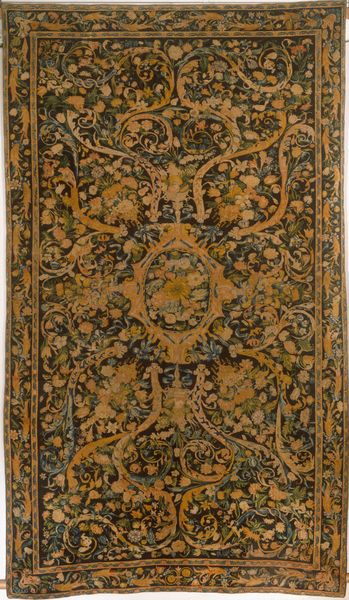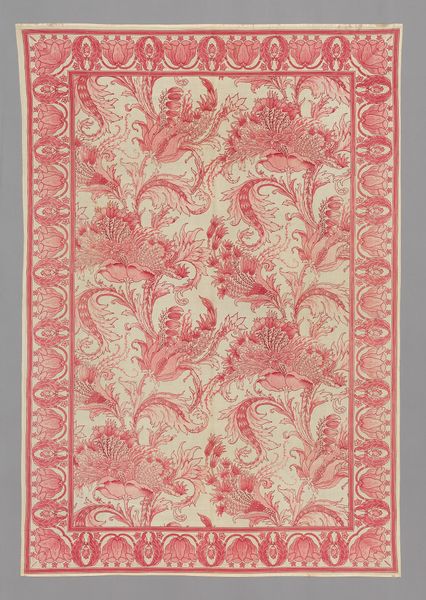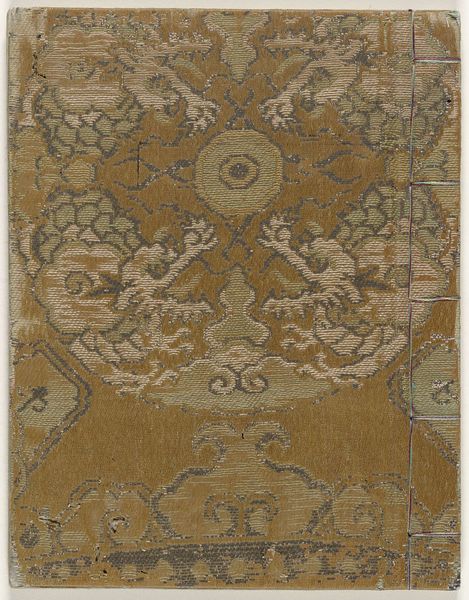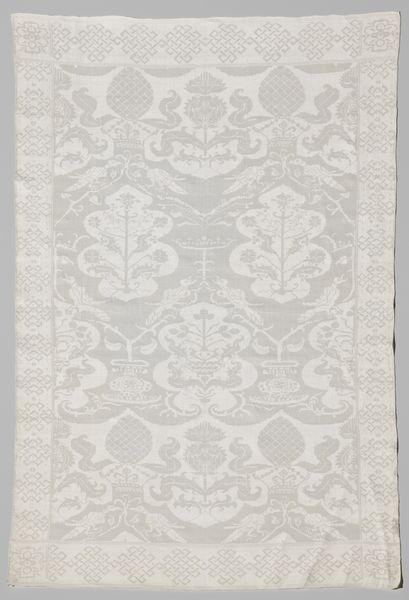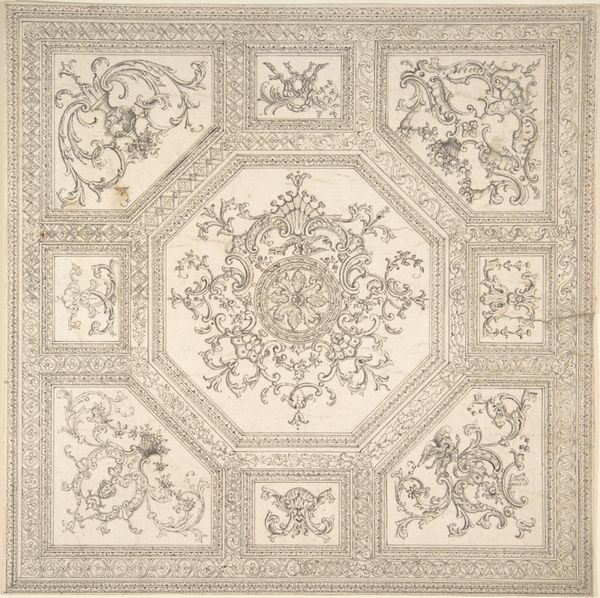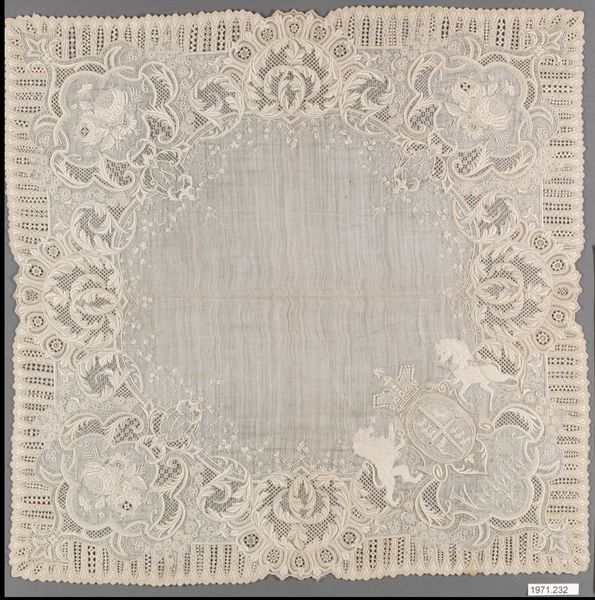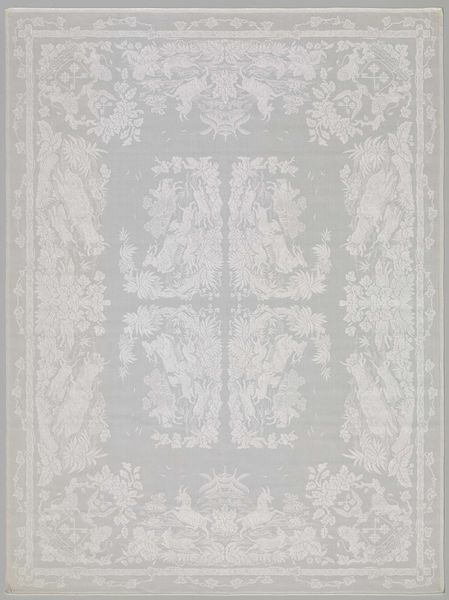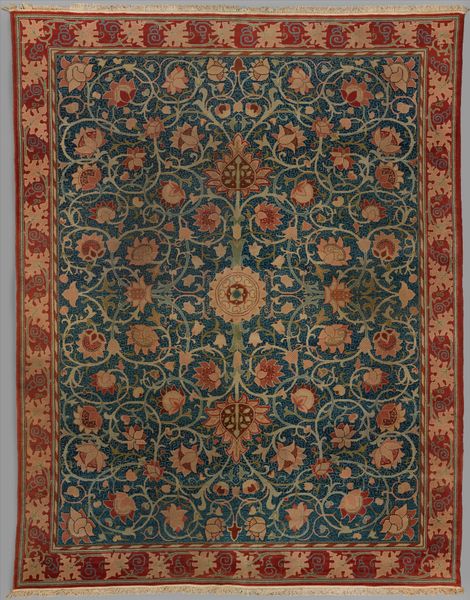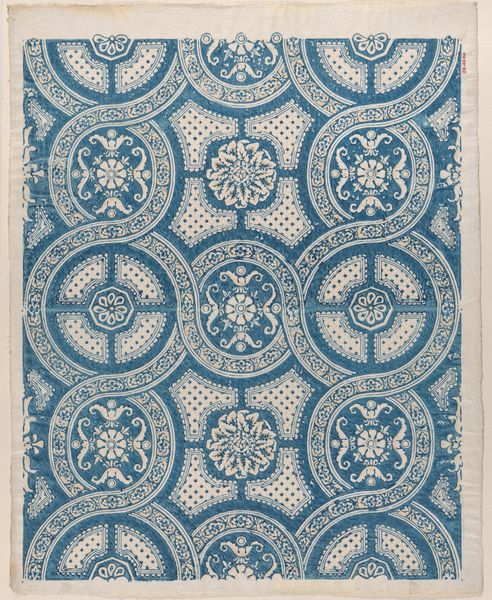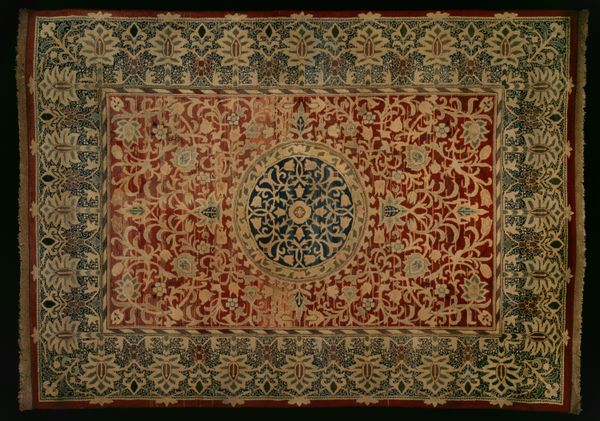
print, weaving, textile
#
naturalistic pattern
#
organic
#
baroque
# print
#
weaving
#
textile
#
organic pattern
#
geometric
#
decorative-art
Dimensions: 179.2 × 137.4 cm (70 1/2 × 54 1/8 in.)
Copyright: Public Domain
Editor: Here we have an intriguing textile work, simply titled "Panel," dating from between 1675 and 1727. It's anonymous, but resides here at the Art Institute of Chicago. The indigo dye creates a serene and somewhat formal feeling, yet the pattern is floral, ornate. How might we interpret such a complex piece? Curator: This textile offers a fascinating insight into production and consumption of the time. Consider the labour involved in creating such an intricate design – the weaving, the dyeing with indigo, potentially imported. Who was commissioned to create this object, and what does it suggest about the patron's status? Is it high art or functional craft, or perhaps intentionally blurred between the two? Editor: I hadn't considered the blurring of art and craft so directly. Is there something about the materiality of textile production itself that challenges these divisions? Curator: Precisely. Weaving, traditionally considered "women's work," highlights the gendered division of labour. How does its display in a museum context – traditionally showcasing fine art made by men – reframe that historical narrative? Does it challenge our assumptions about artistic value based on the labour and materials involved? Think about access, too – the affordability, how accessible were these techniques at the time? Editor: So, looking beyond just the visual aspects, considering how the Panel was made helps us understand broader social and economic structures. Curator: Exactly. The Panel becomes a lens through which to view class, gender, and the material culture of its time. The indigo dye alone could signify global trade routes and colonial power structures, depending on its source. We see how design mediates economic exchange. Editor: That’s really opened my eyes. I thought about it formally and aesthetically, but now I see it holds a whole world of information about society! Curator: Indeed, recognizing these things, it shows how much an object thought to be as simple as this “Panel”, holds much complexity.
Comments
No comments
Be the first to comment and join the conversation on the ultimate creative platform.
